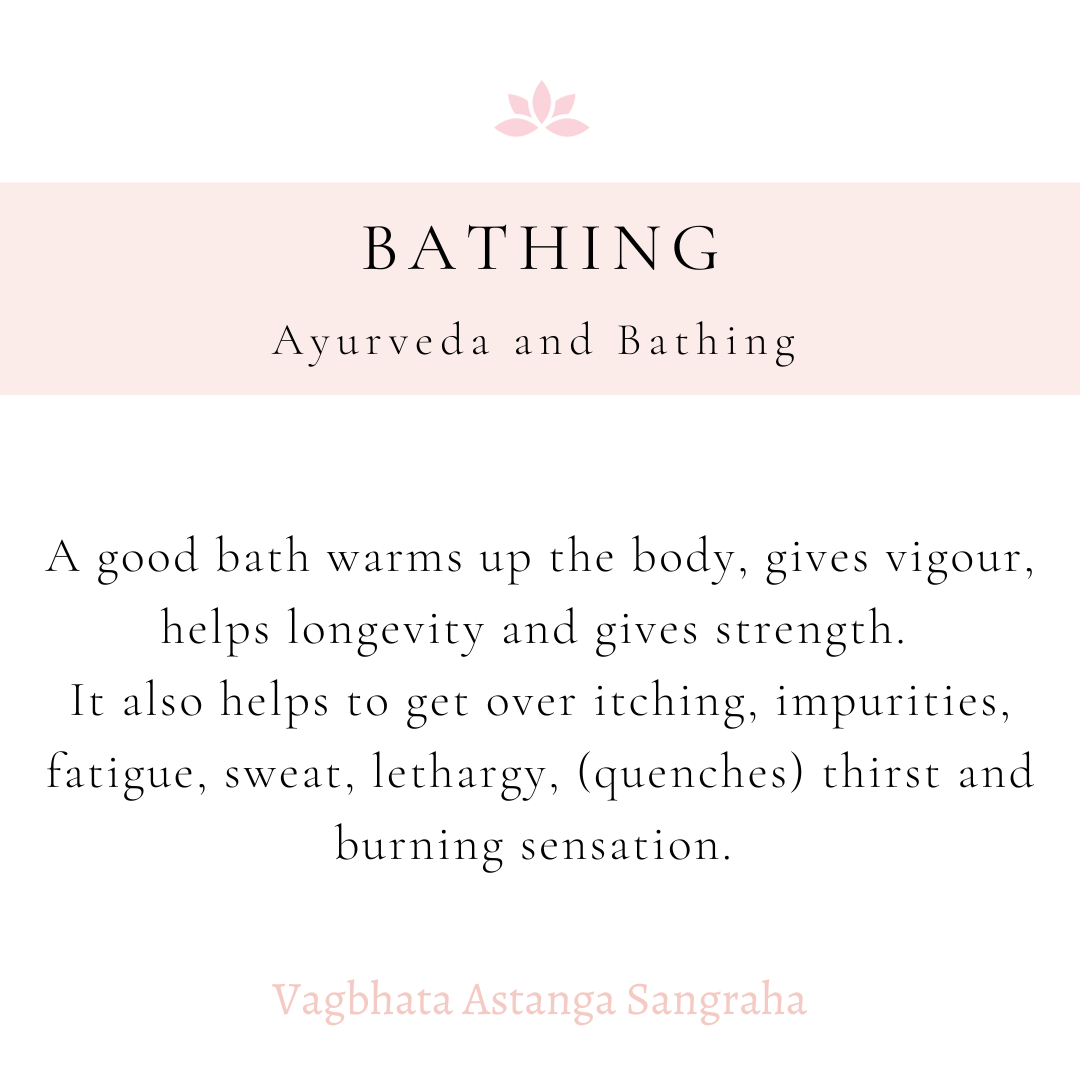Bath the Ayurvedic way
October 18, 2023 2 min read

After coming back from my travels the best part to have an Anhyanga oil massage and a nice bath.
Do you love a hot bath or shower? Hands up for me! Immersing in warm water is something I just LOVE.
Are you bathing the Ayurvedic Way? Learn a few tips below
Bathing traditions are widespread and deep seated in the Indian culture. According to Vagbhata Astanga Sangraha, “a good bath warms up the body, gives vigour, helps longevity and gives strength ||
It also helps to get over itching, impurities, fatigue, sweat, lethargy, (quenches) thirst and burning sensation.”
Snana (bathing) is the regimen that is to be done daily and which removes Mala (waste products) and Sweda (sweat) Snana is beneficial in increasing Bala (strength), Roopa (enhances beauty), Swarashudhi (voice), Sparsha (soft touch), Gandha (pleasant odour), Parishudhatha (cleanliness) and Shanty (peace).
A bath is recommended as a daily ritual in the nithya dinacharya, the daily routine. Ayurveda mentions a few unique tips for bathing in which you may not have heard before.
1. Avoid hot water for your head and eyes.
2. Don’t bathe just after eating.
3. Use a jug in your bath and pour the water on the back of your neck, this gives strength.
4. Use Lakshmi’s bath powder for a beautiful skin and complexion. Soap was not traditionally used in bathing. Soap cleanses but can be drying and accelerate ageing. Scrubs and bath powers containing gram flour and herbs are preferred.
5. Recommended bath additives are Neem leaves, Sandalwood powder, jasmine, roses and milk
6. It is best to fill the bath up to the navel area. This is also called a Sitz bath (Avagaha).
You should not have a bath if you:
1. Suffer from Atisara (diarrhoea).
2. Ardita (facial paralyasis).
3. Bhuktavat (immediately after consuming food).
4. Jwara (fever).
5. Karnashoola (ear ache/ otitis).
We hope you enjoyed learning more about bathing from an Ayurvedic perspective. If you have any questions, you’re welcome to message us or contact us during office hours at 0406 810 547.
Wishing you a great afternoon
Subscribe
Sign up to get the latest on sales, new releases and more …

